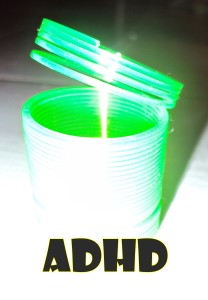 One of my friends has trouble with her son. She told me that his son is not sitting in the classroom and have difficulty in attention. The teacher advises her to see a developmental pediatrician to evaluate his son’s behavior. My friend found out that his son has attention deficit hyperactivity disorder (ADHD). His son’s behavior is improving through the proper intervention.
One of my friends has trouble with her son. She told me that his son is not sitting in the classroom and have difficulty in attention. The teacher advises her to see a developmental pediatrician to evaluate his son’s behavior. My friend found out that his son has attention deficit hyperactivity disorder (ADHD). His son’s behavior is improving through the proper intervention.
What is ADHD (Attention Deficit Hyperactivity Disorder)?
ADHD is a mental disorder that affects both children and teens and can continue into adulthood. Children with ADHD can be hyperactive, trouble paying attention and unable to control their impulses. Boys are about three (3) times more likely to diagnose ADHD than girls.
ADHD Signs and Symptoms
- trouble paying attention
- difficulty staying focus
- excessive talking
- always on the go
- difficulty in remaining seated
- excessive running or climbing
- fidget or squirm in the chair when force to sit
- difficulty in following instruction that requires planning
- more quieter than others and less involve to other kids
- lack of focus
- difficulty in keeping emotion
- inability to determine people’s needs and desires
- difficulty organizing task and activities
- forgetful in daily activities
- difficulty awaiting turns
- intrudes on others
ADHD treatment
Parent concerns about the treatment for their children with ADHD. ADHD can be successfully managed through behavior therapy and medication. Some researchers believe that changing in diet can help to manage behaviors.
- Behavior therapy
Children with ADHD often have disruptive behavior towards other and difficulties in paying attention and focus. Behavior therapy will help to reduce these behaviors. The goal of behavior therapy is to strengthen positive behavior and eliminate unwanted behaviors. It also helps to reduce problems in school or classroom.
- Medication treatment
Medicine is may be effective way to manage ADHD symptoms. It helps to control some of the behavior problems that led to troubles. These medicines may respond to one child but not to another. So it is important talk to your doctor to find medication that best suited to your child. These medicines include methylphenidate, dexamfetamine, lisdexamfetamine and atomoxetine. Medication treatment are not permanent cure for ADHD but it can help to concentrate better, feel calmer, learn more skills and be less impulsive.
- Diet
Individuals with ADHD should eat healthy foods because some believes that there is a link between the types of foods that worsening the ADHD symptoms. For instance, eating sugar, food coloring, and preservatives can make a child more hyper and impulsive while eating dairy products will add to ADHD symptoms. In this case, you can keep of diary of foods that makes symptoms worsen and discuss it to your doctor to refer you to dietitian. Do not ever change your child’s diet without consulting to your doctor.
- Supplements
Some suggest that consuming a supplement of omega-3 and omega-6 fatty acids may be good in people with ADHD but of course, it is also need to seek advice to doctor before taking any supplements because it may react with medication and became less effective.
As mention earlier, my son diagnosis is not yet clear since he is only 36 months old. He has some symptoms of autism and ADHD. Developmental pediatrician said that he is on the global development delay at this point. I hope that with early intervention my son will cope up with his delay and eliminate his symptoms as he grows older.
